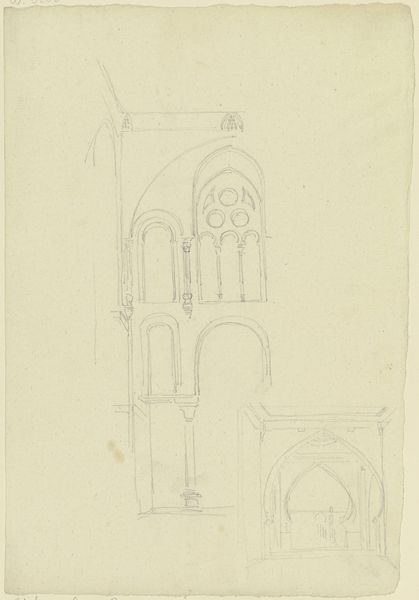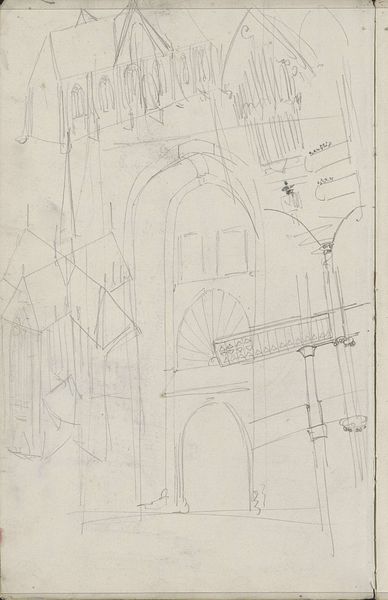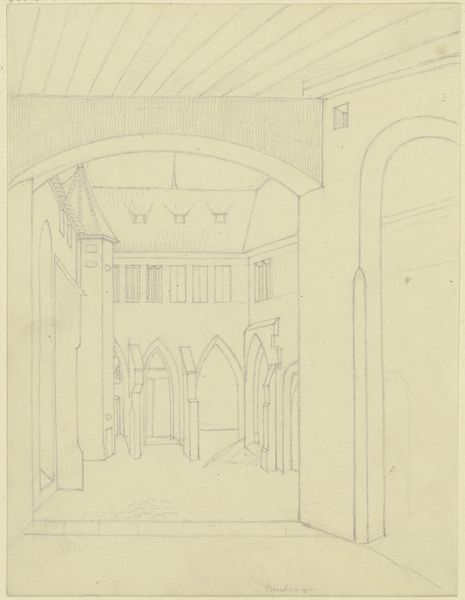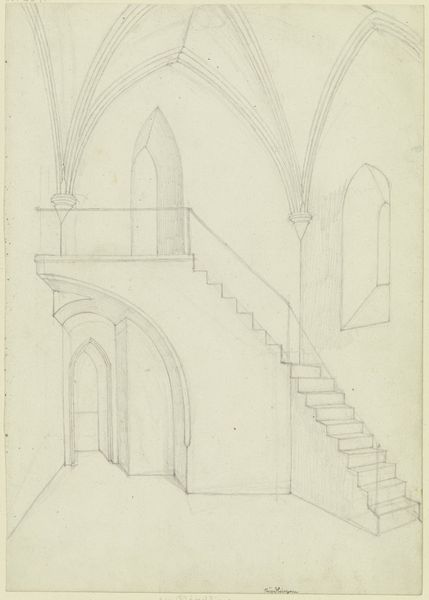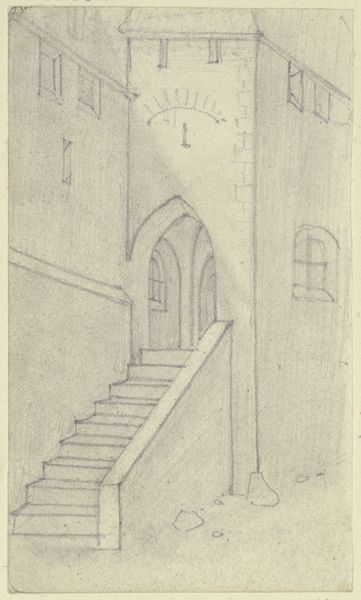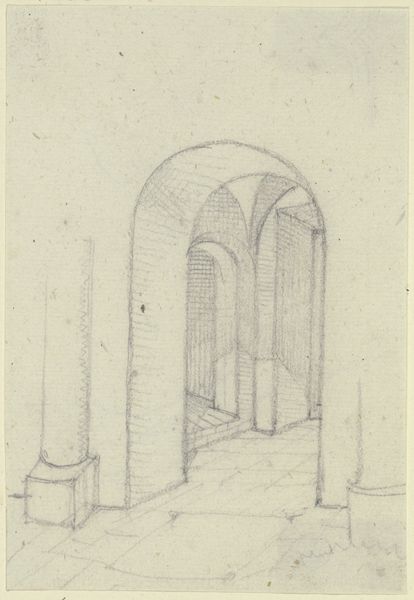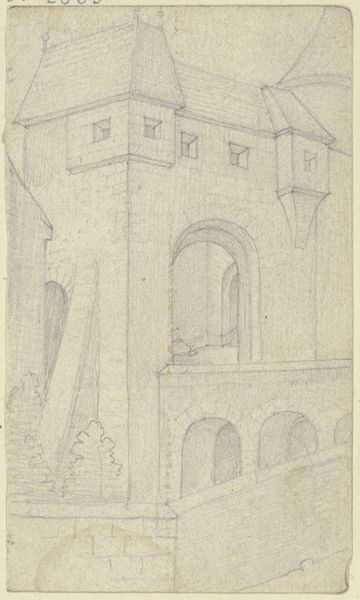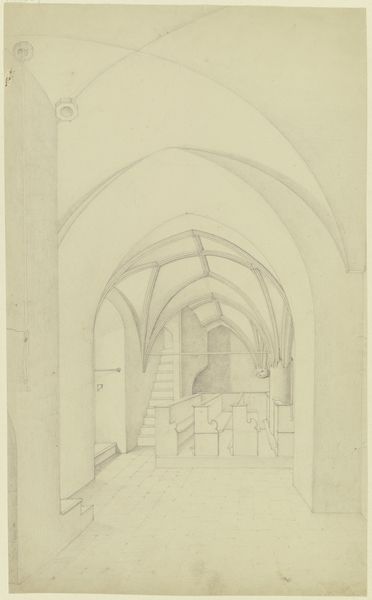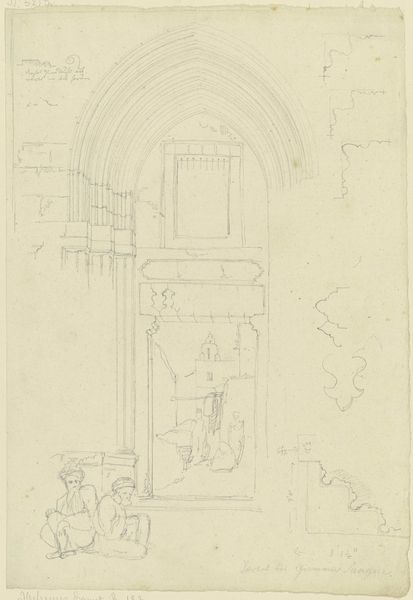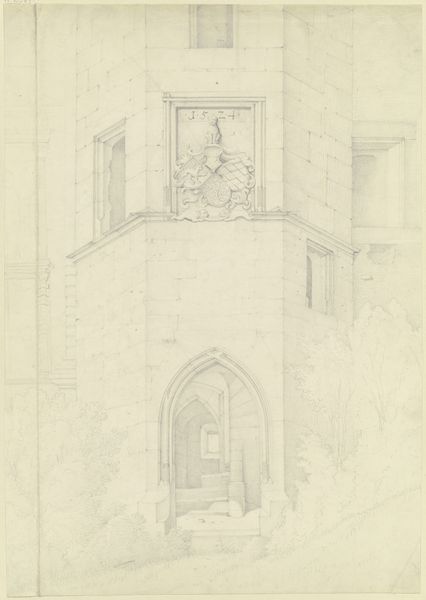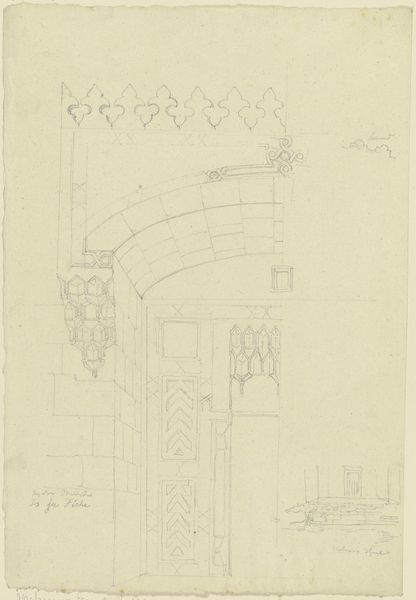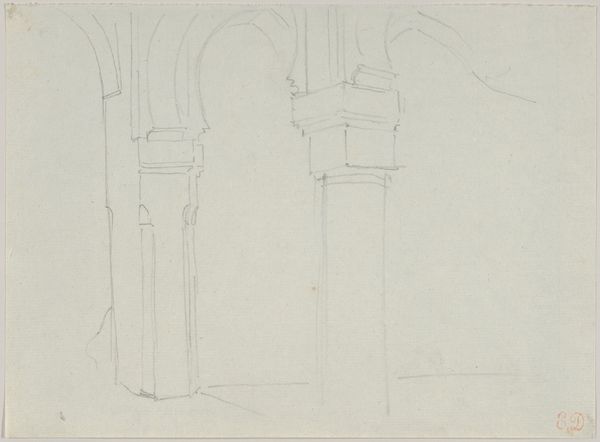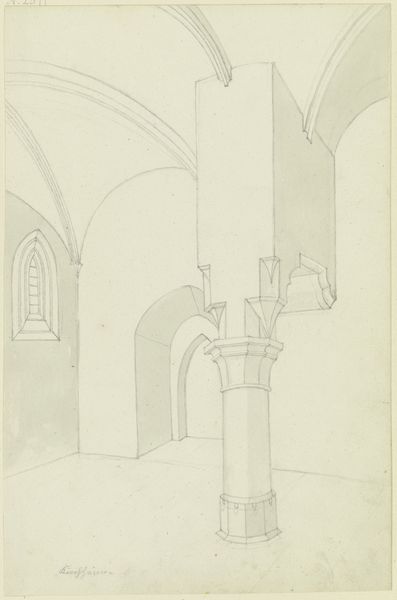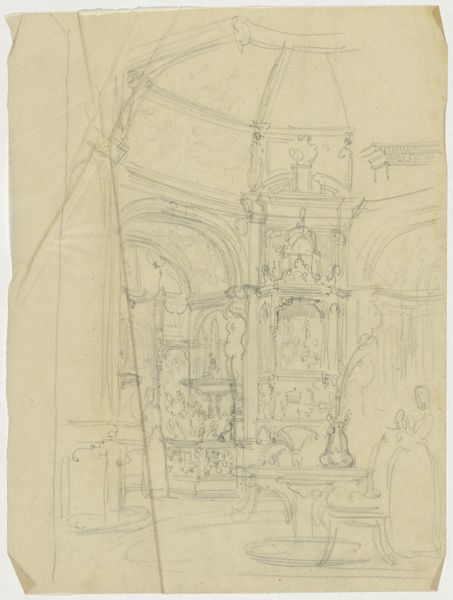
drawing, paper, ink, pencil, architecture
#
drawing
#
etching
#
paper
#
ink
#
geometric
#
pencil
#
line
#
architecture
Copyright: Public Domain
Editor: So, here we have Karl Ballenberger's "Schwanenritterkapelle im Chor der Gumbertuskirche," a drawing rendered in pencil and ink on paper. It gives us a detailed view of the architecture. I am immediately struck by the intricacy of the linework and its focus on form and structure. What jumps out to you in this piece? Curator: The means of production itself speaks volumes. Look at the use of pencil and ink - tools readily available, yet deployed to meticulously capture an architectural space. It raises the question: What was the purpose of such detailed rendering? Was it a study for a larger work, a record, or something else entirely? Consider the labor involved in creating this level of detail, each line a testament to the artist's hand and time. Editor: That's interesting! I hadn't considered the sheer time investment. I suppose, was this architectural rendering commonplace? Curator: Precisely! This type of architectural drawing often served specific functions within the building trades. But consider that Karl Ballenberger worked at the Städel and the Städelschule: was it merely documentation, or could it also be seen as exploration of material, form and social structures, an essayistic study for students? Editor: Oh, I see, and with that much geometric detail, it challenges the idea of simple "craft." The drawing becomes more than just a functional blueprint. It highlights architectural labor... the building's own "means of production," if you will. Curator: Indeed. And think about the paper itself - a commodity, yet the very surface upon which this social transaction occurs, connecting the artist, the patron (if any), and ultimately, us. Editor: This drawing definitely has new layers now! I came thinking about just architecture, but I see now how materials, labor, and purpose all combine into a potent piece of social commentary. Curator: Exactly, now, will you ever look at drawings the same way?
Comments
No comments
Be the first to comment and join the conversation on the ultimate creative platform.
